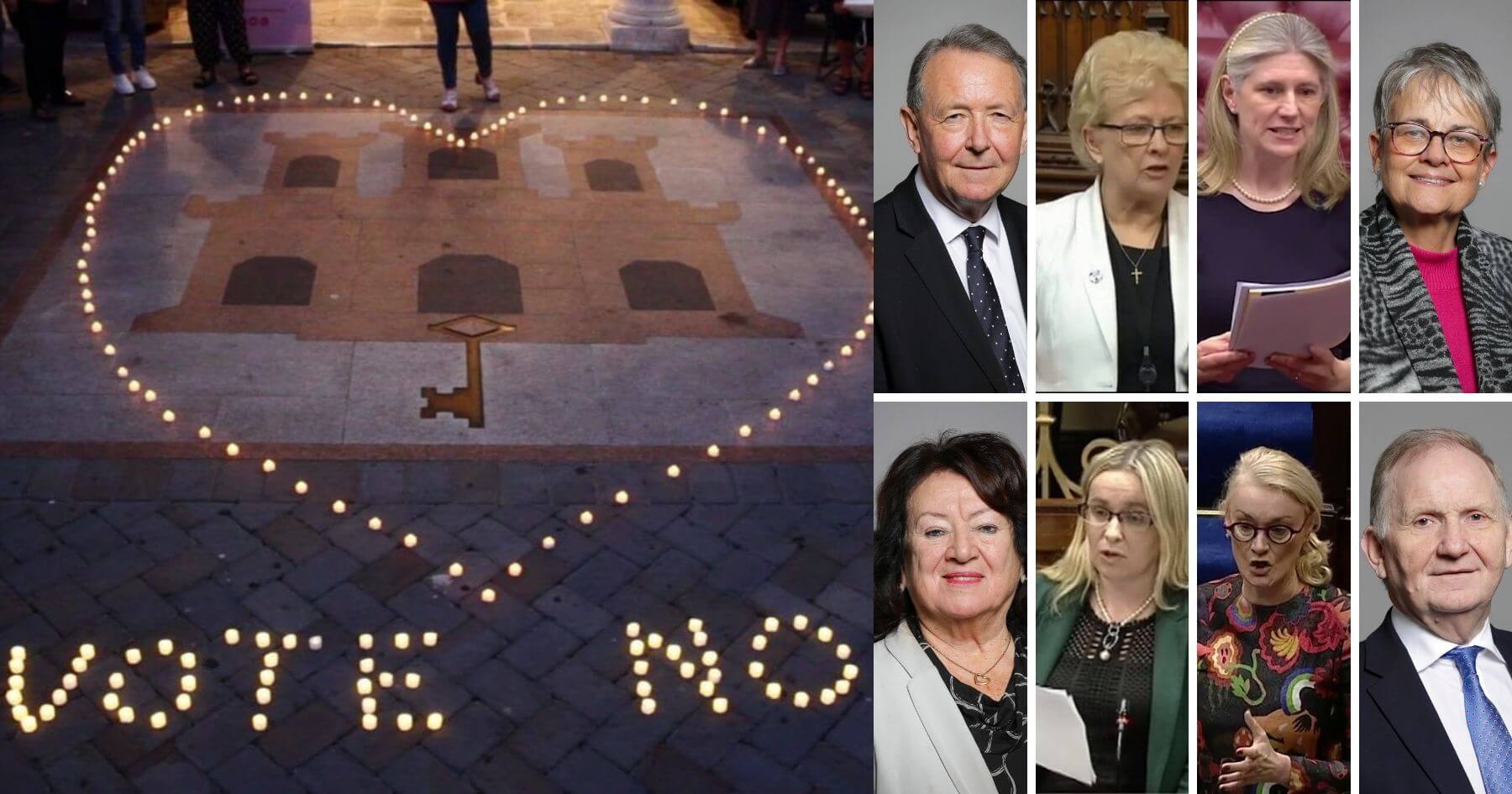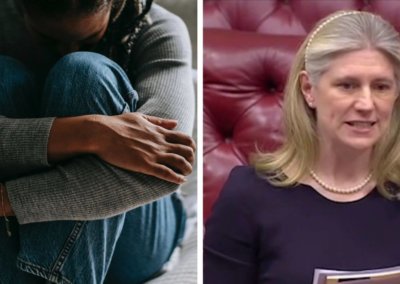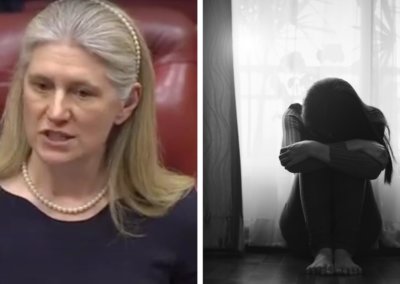High-profile politicians from both the United Kingdom and Ireland have called on Gibraltar to ‘vote NO’ in the abortion referendum that will be held tomorrow.
Eight members of the UK’s House of Lords have signed a letter to the people of Gibraltar, asking them to reject the introduction of a new abortion law.
Their letter argues that the 24 June referendum is not about permitting women to have life-saving medical treatment, which is already provided for in Gibraltar’s current law, but about deliberately depriving the unborn of their right to life. The letter also argues that the practice of abortion in the UK has had devastating consequences, and asks Gibraltar to vote no in Thursday’s referendum.
In a video address ahead of the referendum, Lord Alton of Liverpool, who co-signed the open letter, said: “I remember with great fondness my visit to Gibraltar last year. In Gibraltar, you have something very special that you can hold onto”.
“By contrast in Britain, we introduced abortion before we knew so much about the humanity of the unborn child. Our legislators never expected that we would have over 200,000 abortions every year. That’s 1 in 5 pregnancies. 1 abortion every 3 minutes”.
“You have the evidence before you now, and before you vote on the 24th of June. I encourage you to support mothers and families which I know you do already, and I urge you to not let go of that something special: laws that protect everyone, born and unborn alike. I encourage you to vote no”.
The letter was signed by seven other UK Peers, including Lord Mackay of Clashfern, former Lord Chancellor of the United Kingdom, Baroness O’Loan of Kirkinriola, Lord Morrow of Clogher Valley, and Baroness Stroud of Fulham.
“Don’t make the same mistake Ireland did”
An open letter signed by eight Irish politicians has also been released. The letter asks the people of Gibraltar to vote no and suggests that the result of the Irish abortion referendum was a mistake that Gibraltar ought not to repeat.
The letter is signed by six TDs, the Irish equivalent of MPs, and two Senators. Their letter emphasises that voting against the new abortion law is not only the compassionate thing to do but also the right one in light of Ireland’s experience since the 2018 referendum, after which abortion was legalised.
The letter implores voters to “[not] make the same mistake Ireland did”, and explains how the number of abortions in Ireland has skyrocketed since January 2019 when the new law came into effect, despite previous Government promises that this would not be the result. It says 6,666 abortions were carried out in the first year since the vote alone. They argue that the alleged safeguards in Irish law have not worked, and point to a tragic case in which doctors mistakenly and illegally aborted a healthy baby after it was misdiagnosed with a serious disability.
They say that as with the Irish referendum, Gibraltar’s vote is not about healthcare – but about deliberately and intentionally depriving unborn children of their right to life, and that the territory still has a chance to stand up for the most vulnerable, and oppose this proposed change.
“Save Babies, Vote No”
The 24 June referendum on whether to introduce a new abortion law to the territory was initially scheduled for 19 March 2020, and the voting age was lowered to 16 for the vote.
However, the referendum was delayed until 2021 due to the COVID-19 pandemic. The ballot paper question has been set as “Should the Crimes Amendment Act 2019, which defines the circumstances which would allow abortion in Gibraltar, come into force?”.
Last Thursday an estimated 600 to 700 people attended the ‘Save Babies, Vote No’ march and gathered in John Mackintosh Square in central Gibraltar to hear speeches by the campaign organisers.
Their speeches emphasised that Gibraltar’s mental health services must be revamped to provide adequate help for people experiencing difficulties.
The official campaign for the ‘no’ vote is being run by Gibraltar Pro-Life Movement who are running the ‘Save Babies, Vote No’ campaign. The campaign has produced an extensive fact check guide that outlines the key issues with the proposed law change.
In response to last week’s news that England and Wales recorded the highest ever annual number of abortions in 2020, the Gibraltar Pro-Life Movement wrote: “Laws change behaviour. Once we let the protection of life go, abortion rates inevitably rise”.
Gibraltar Pro-Life Movement spokesperson James Brenig said: “Once abortion is legalised, it becomes impossible to restrict. Laws shape behaviours and attitudes. We still have time in Gibraltar to stop this becoming our reality”.
A spokesperson for Right To Life UK, Catherine Robinson, said: “It is tremendous to see politicians in the UK and Ireland, where abortion on demand has had such devastating consequences for the unborn and society at large, fearlessly speak up for Gibraltar, where the decision to prioritise the right to life still lies in the hands of voters. I hope that voters in Gibraltar tomorrow will approach the referendum question with concerns for the lives of both the born and the unborn in mind”.












